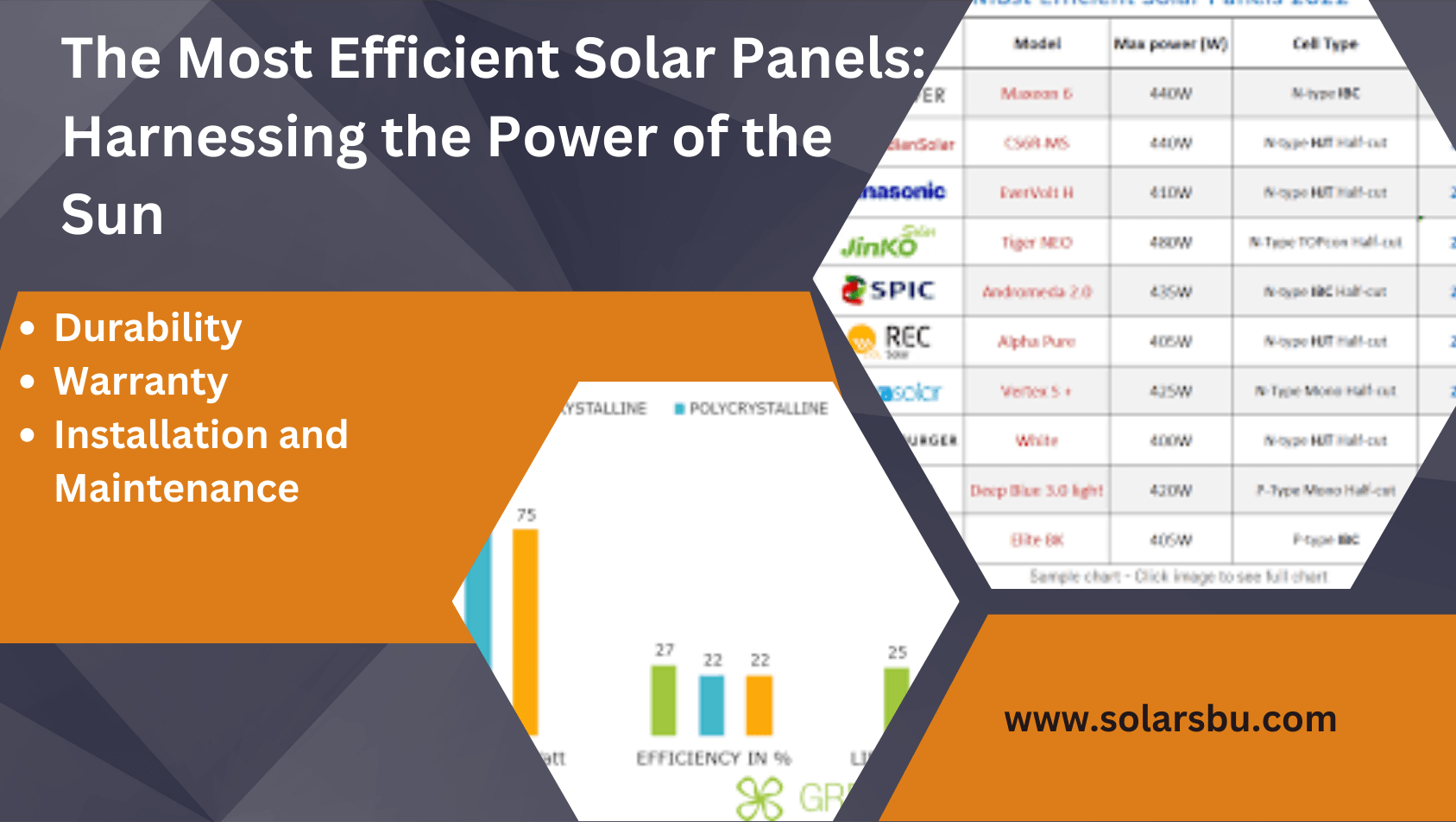The Most Efficient Solar Panels: Harnessing the Power of the Sun
In our pursuit of cleaner and more sustainable energy sources, solar panels have emerged as a beacon of hope. These remarkable devices convert sunlight into electricity, providing a renewable and eco-friendly energy solution. But with the market flooded with various options, it can be overwhelming to determine which solar panels are truly the most efficient. In this comprehensive guide, we delve into the world of solar technology to help you make an informed decision and ensure that your solar panels not only generate power but also outrank the competition.
Understanding Solar Panels: A Brief Overview
Before we dive into the specifics of the most efficient solar panels, let’s first grasp the fundamental concept behind these marvels of modern engineering. Solar panels, also known as photovoltaic (PV) panels, work on the principle of converting sunlight into electricity. This process is made possible by the photovoltaic effect, where certain materials generate an electric current when exposed to light.
The Efficiency Factor: What Sets the Best Apart
When it comes to solar panels, efficiency is the name of the game. High-efficiency solar panels can harness more sunlight and convert it into electricity, ultimately generating more power from the same surface area. This not only maximizes your energy production but also minimizes the number of panels required, saving you both space and money.
Monocrystalline vs. Polycrystalline: The Great Debate
One of the most critical decisions you’ll face when choosing solar panels is whether to opt for monocrystalline or polycrystalline technology. Let’s explore the differences between these two options:
Monocrystalline Solar Panels
Monocrystalline panels are known for their high efficiency, making them a top choice for those looking to get the most power from their solar installation. These panels are crafted from single-crystal silicon, which offers a higher energy conversion rate compared to polycrystalline panels. Monocrystalline panels are also known for their sleek black appearance, which can be more aesthetically pleasing for many homeowners.

Polycrystalline Solar Panels
Polycrystalline panels are a more budget-friendly option, often appealing to those with cost-conscious considerations. While they may not be as efficient as their monocrystalline counterparts, they are still a viable choice for many residential solar projects. Polycrystalline panels are made from multiple silicon fragments, giving them a distinctive blue hue.
Breaking Down Efficiency Ratings
Now that we understand the difference between monocrystalline and polycrystalline solar panels, let’s explore the efficiency ratings that truly set the best panels apart. Solar panel efficiency is measured in terms of a percentage, indicating how much sunlight the panel can convert into electricity.
The efficiency rating is a critical factor to consider when selecting solar panels. High-efficiency panels typically have ratings in the range of 20% to 22%, while standard panels may have ratings between 15% and 18%. Choosing high-efficiency panels ensures that you get the most power from your solar system, making it a wise long-term investment.
Beyond Efficiency: Factors to Consider
While efficiency is a pivotal factor, it’s essential to remember that other considerations can impact the overall performance and longevity of your solar panels. Here are some additional factors to keep in mind:
1. Durability
Ensuring that your solar panels are built to withstand the test of time and various weather conditions is crucial. Look for panels with robust frames and high-quality materials that can endure harsh environments.
2. Warranty
A reliable warranty is a testament to the manufacturer’s confidence in their product. Opt for solar panels with extended warranties to safeguard your investment.
3. Installation and Maintenance
Proper installation and regular maintenance are essential for the optimal functioning of your solar panels. Consider working with certified professionals to ensure a seamless installation process.
The Future of Solar Technology
As technology continues to advance, the world of solar panels is continually evolving. Emerging innovations, such as bifacial solar panels and solar tracking systems, promise to enhance efficiency and harness even more energy from the sun.
Conclusion: Making the Right Choice
In your quest for the most efficient solar panels, remember that efficiency is just one piece of the puzzle. Consider your budget, aesthetic preferences, and long-term goals when making a decision. High-efficiency monocrystalline panels may be the top choice for some, while others may find polycrystalline panels to be a better fit.
you need to explore more then visit here

